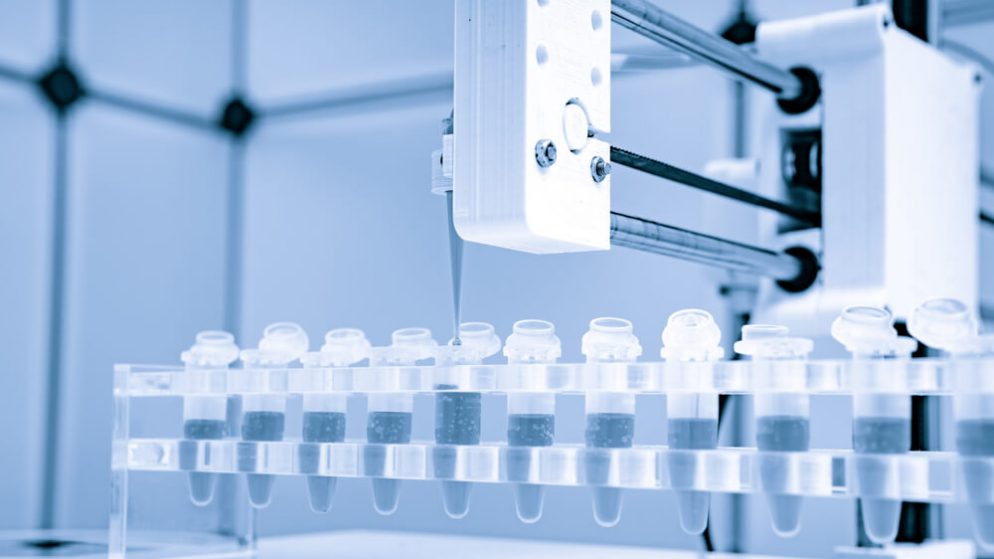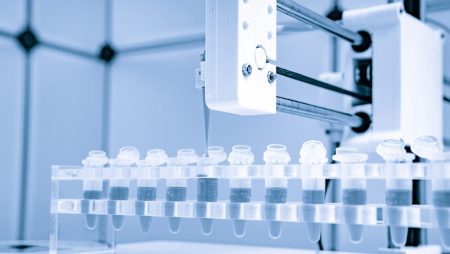



Get new exclusive access to healthcare business reports & breaking news




CellChorus®, the dynamic single-cell analysis company™, announced May 2nd that the National Center for Advancing Translational Sciences (NCATS) of the National Institutes of Health (NIH) has awarded CellChorus a Small Business Innovation Research (SBIR) Fast-Track grant. The funds will help advance the development of its Time-lapse Imaging Microscopy In Nanowell Grids™ (TIMING™) platform for dynamic single-cell analysis.
A two-year $2.1 million Phase II grant will begin after predetermined milestones are achieved under a $350,000 Phase I grant that is underway.
Immune cell-based therapies are revolutionizing patient care by engineering or recruiting cells to fight disease. Understanding the therapeutic potential of these therapies is complex due to the variation in how cells interact and perform, as well as the need to monitor immune cell function over time. To advance the next generation of cell‑based products, the field requires the ability to profile individual cell‑cell interactions and performance at scale. Some companies, such as Cellero, for instance, offer cell characterization and processing services in support of cell therapy manufacturers. Finally, the company offers cell-based research tools and services for discovering new drugs. Others are developing personalized cancer immunotherapies, but they all work towards finding or supporting new, better treatments for patients. Early detection and diagnosis are difficult, because ideal cancer biomarkers needed are missing. Consequently, most patients are diagnosed when they are already in a late-stage of the disease, so the possibilities to successfully treat them remain limited. Traditional cancer treatment approaches, such as surgery, chemotherapy and radiation therapy, have been less efficient for patients with late-stage disease. This is why innovative and effective cancer treatments are urgently needed for cancer patients with late-stage and refractory disease.
The TIMING platform comprehensively studies cells to quantify how immune cells move, interact, kill, survive, and secrete biomolecules at single-cell resolution. Data and insights from the TIMING platform enable the field to develop, manufacture and deliver novel therapies faster, at less expense, and with higher rates of success to benefit patients in oncology, infectious diseases, and a wide range of other diseases and disorders.
“While many cell therapies have been approved and are in development, the industry needs an integrated analytical platform that provides a matrix of functional readouts including cell phenotype and metabolism on the same cells over time,” said Rebecca Berdeaux, PhD, Vice President of Science at CellChorus. “We are grateful to NCATS for its support of the development of application-specific kits that apply dynamic, functional single-cell analysis of immune cell phenotype and function. The product we will develop will increase the impact of these therapies to improve the lives of patients.”
The CellChorus TIMING platform is available through a commercial service offering in the CellChorus Innovation Lab, which is located in Houston, Texas. Data from TIMING assays have been featured in more than 20 peer-reviewed papers across a range of cell types and therapeutic areas. Industry leaders have leveraged TIMING data in many different applications, including research, preclinical development, clinical development, manufacturing analytics, and the identification of biomarkers predictive of patient response. In addition to providing data on cellular movement, morphology, interactions, killing, survival and subcellular activity over time, the TIMING platform can provide data on individual cell phenotype and biomolecule secretions. Individual cells of interest can be retrieved for linked downstream analysis such as transcriptional profiling.
TIMING is more than a great idea whose time has yet to come. It has already been proven in great depth. In fact, last June, CellChorus CEO Daniel Meyer told InnovationMap that he was initially attracted to the technology because it was “very well validated.” At the time, CellChorus had just announced a $2.3 million SBIR Fast-Track grant from the National Institute of General Medical Sciences. The company also won an award in the Life Science category of the 2023 Houston Innovation Awards, only a few days later.
That confirmation of success comes from more than 200 peer-reviewed papers that describe myriad cell types and types of therapy, all of which used data from TIMING assays. TIMING data has benefited industry leaders in everything from research and clinical development to manufacturing. With the new grant, TIMING will become more widely available to scientists making important discoveries about the ways our immunity responsible cells are working.
This grant is provided by the National Center for Advancing Translational Sciences of the National Institutes of Health under Award Number R44TR005137. The content of this release is solely the responsibility of the authors and does not necessarily represent the official views of the National Institutes of Health.
CellChorus® is the leader in applying artificial intelligence to quantify the function and performance of cells over time to improve the development and delivery of novel therapies that improve patient care. The company applies Time-lapse Imaging Microscopy In Nanowell Grids™ (TIMING™) with neural network-based detection to identify how cells move, activate, kill, and survive at single-cell resolution. The patent-protected platform can link TIMING data and insights with information from other analysis modalities such as single-cell RNA sequencing to provide a comprehensive understanding of cellular function, state and phenotype. Please visit cellchorus.com for more information.